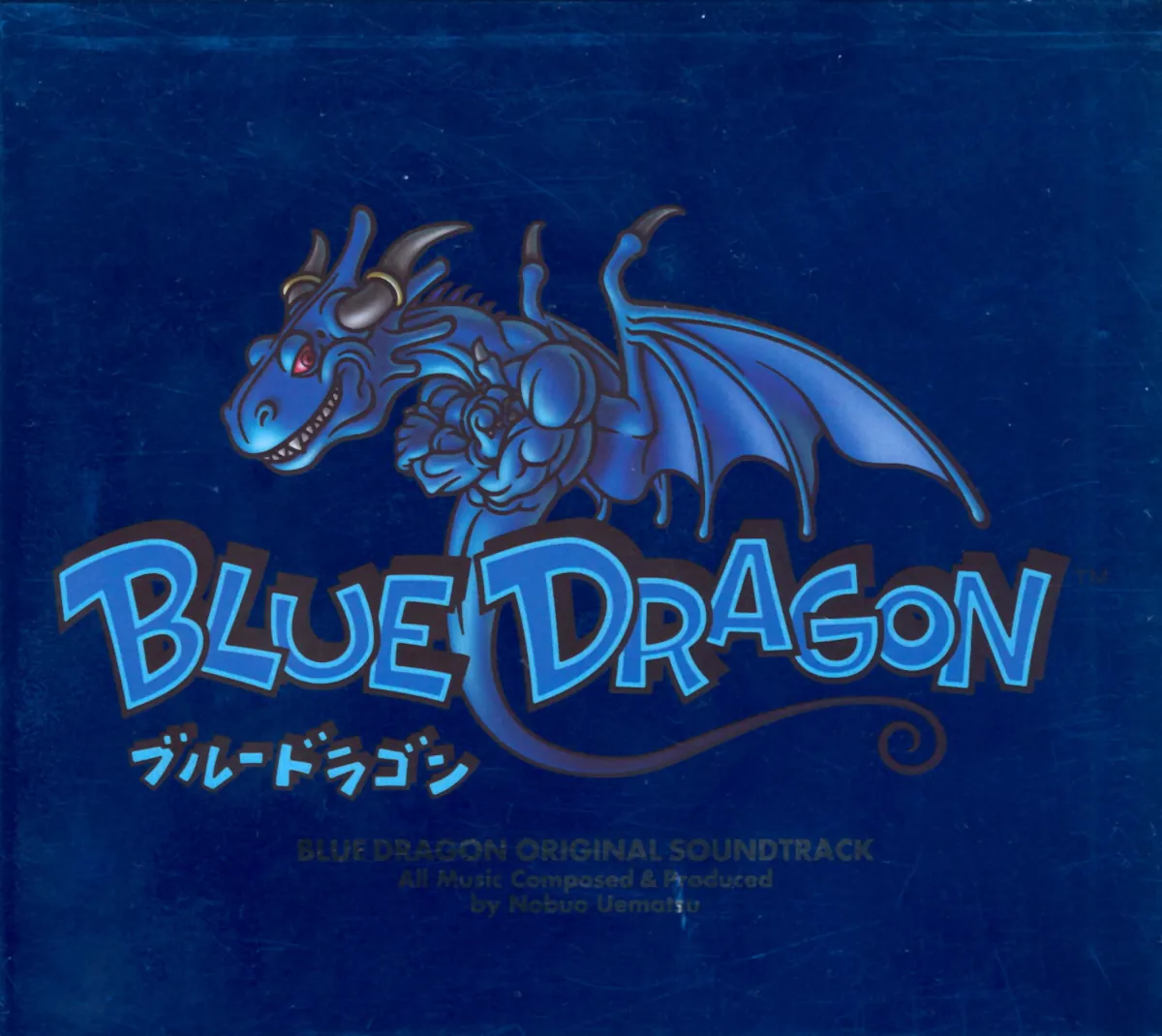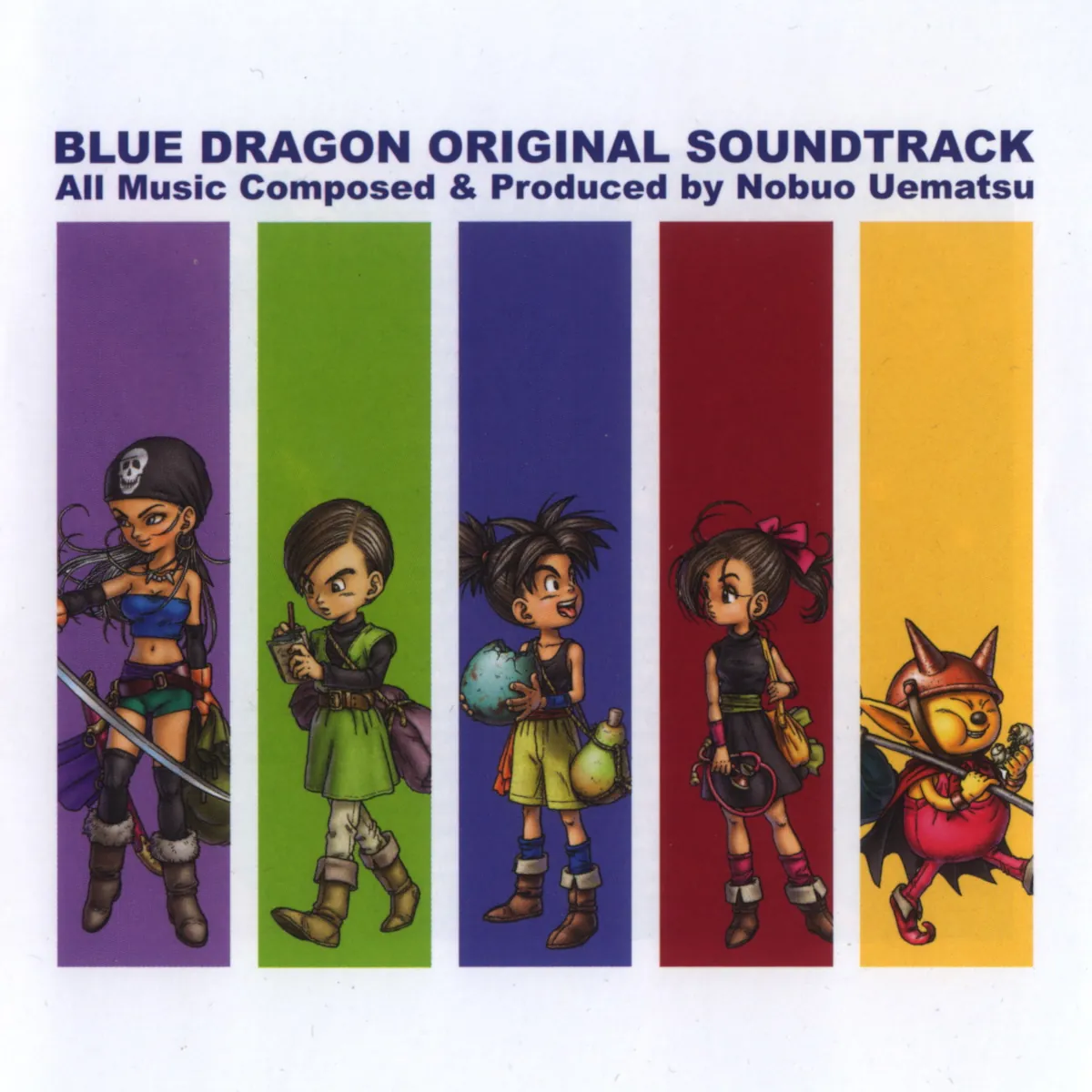After Uematsu’s stellar career working with Square, composing the soundtracks to every Final Fantasy (until XII, where Sakimoto took charge), the veteran VGM writer went freelance, creating the Smile Please studio, and working with his long-time friend Hironobu Sakaguchi (creator of the Final Fantasy series) on music for games developed by Mistwalker. The first of these games to be released was the Xbox 360 RPG Blue Dragon.
There was, is, and will continue to be speculation as to whether Uematsu can make a ‘comeback’ or if his best days are behind him. To me, this is a false dichotomy. When Uematsu got started, it’s not like his early scores were breathtaking (yeah, that’s right, the Final Fantasy I OST isn’t the most amazing soundtrack). In the same way, it is my feeling that Uematsu, look other composers who have recently gone freelance, are getting a fresh start. The music that comes out at first may feel unrefined, silly, or at the very least, quite different from what we’re used to.
The Blue Dragon Original Soundtrack isn’t anything spectacular. The high points, without any sort of doubt, are the guitar-heavy battle tracks (Uematsu must have learned a thing or two with The Black Mages). The vocal tracks are weak, and the lighter songs, while pretty, don’t seem to stand out.
Uematsu seemed to branch out more with this release in terms of experimenting with synth. Even in his more mechanized songs from, say, Final Fantasy VII, there was a limit to how far he would go. Uematsu breaks out of his mold with songs like “Giant Mechat” and “Mecha-Robo Army Charge!”
I did appreciate some of the standard tunes, the type of music expected for an RPG. The last track of the first disc, for example, “Army of the Holy Sword,” was a great song, even though it doesn’t break any new ground or set any high goals for itself. It’s just a lovely song for what it is, and that’s something Uematsu has always been good at doing.
If you were hyped about this album because it was Uematsu’s latest work after a pretty long break, my suggestion is that you hold out for Lost Odyssey (a game that looks to be much less light-hearted than Blue Dragon). I think this work was really something that Uematsu had to do, if not for himself, then for his audience, to let them know that he can and will write music for something other than Final Fantasy. Do I hope for better works to come in the future? Yes. But, in the meantime, Blue Dragon will hold me over. It’s a decent OST; nothing special, certainly not album of the year, but an enjoyable listen for Uematsu fans old and new.





